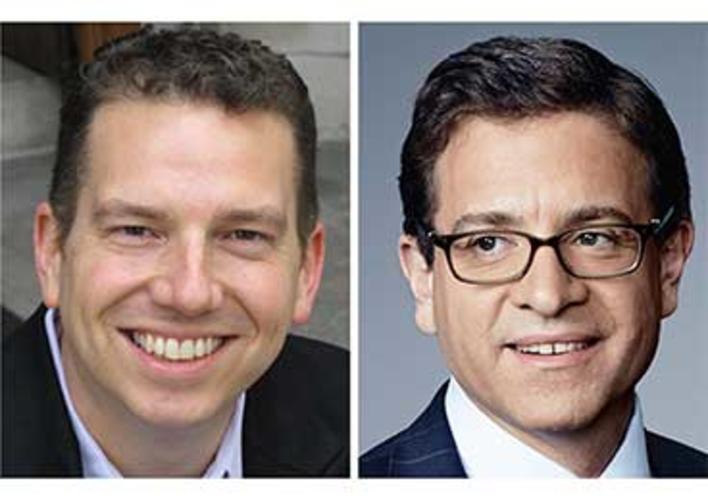
In teaching their course on U.S. history since 1920, history professors Kevin Kruse and Julian Zelizer got tired of packing more and more material into the syllabus every year. The post-1974 period was initially “a postscript, but then we realized this should be its own thing,” says Kruse. So in 2012, they launched HIS 361: The United States Since 1974.
Kruse and Zelizer decided to cover not only political developments but also the fracturing of the media landscape, including the emergence of cable TV, the internet, and social media, which both shaped and were shaped by the politics of the era. The influence of media platforms such as Fox News, Twitter, and Facebook came to a head during the 2016 presidential campaign — just as the historians were working on their new book, Fault Lines: A History of the United States Since 1974 (W.W. Norton).
“We had been teaching about the political divisions and the way that media and technology played into that, but all of sudden the election happened, and we thought, ‘Oh my God, what we were writing about has relevance in the contemporary moment,’” Zelizer says.The 2016 election and its aftermath, which the authors originally thought would occupy two to three paragraphs, ended up filling a whole chapter. Close readers will note that mentions of developments in the Donald Trump presidency stop around March 2018, when Fault Lines, which will also be made into a textbook, had to be submitted to the publisher.
The historians say the timing of the book with the Trump era was fortuitous because Americans are thirsting for historical context about some of the president’s actions. “People are saying, ‘Well, what are the norms here?’ And sometimes we historians can say, ‘This looks like Richard Nixon’ or ‘This looks like George Wallace,’” says Kruse.
Amid concerns about dubious historical claims on social media — something the latter part of their book addresses — Kruse has aggressively harnessed new-media platforms to engage directly with the public about history, through his widely shared Twitter threads that provide analysis and offer links to original documents, images, and newspaper coverage. “The president is on Twitter, so that’s where the conversation is playing out,” Kruse says.
The authors say that historians need to share their voices, so that silence in the face of historical inaccuracy is not viewed as their tacit approval.
“We will never persuade the true believers, but that’s not the goal,” Kruse says. “We are trying to reach the person who comes in with an open mind, so they have available to them the arguments of the other side.”
Zelizer, who regularly writes for and appears on CNN, agrees. “I have found a lot of people are listening, even if they are not persuaded to move from one side to the other,” he says.












No responses yet